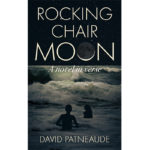THIN WOOD WALLS School Visit
A couple of weeks ago, I was invited to be a panelist for Sakai Intermediate School ‘s annual Leaving Our Island Day. As usual, the visit to Bainbridge Island was as rewarding for me as it was for the kids. Thin Wood Walls was one of the books they could read in preparation for the day, and they had questions for me, which I was happy to answer. They were genuinely curious, and it was easy and gratifying for me to respond to their curiosity. When I wasn’t answering questions, though, I got to listen to the responses from others on the panel, and as always, I was well rewarded. Several of the panelists were people who as kids had gone through what on Bainbridge was later called the “leaving our island” process, and in other places had other names, many of which were surely less poetic and more graphic: removal, relocation, and imprisonment. Desolate backcountry locations. Barbed wire. Soldiers. Machine guns. Separation. Illness. Death.
People of Japanese heritage from up and down the west coast, 120,000 American citizens and residents. The panelists’ recollections of the ordeal, even after eighty years, were fresh with emotion. It was a similar experience to the experiences I had when I was doing my research for the book and interviewing people who had gone through internment. The information I got was invaluable, but the feelings they displayed were what stuck with me. So sad that what they’ve done to enrich my life has only happened at the expense of theirs.
On my way home on the ferry, I couldn’t help but think of the schools in a number of states in this country where the kind of gathering I’d just attended wouldn’t have been possible. Under current thinking (and laws) in those states, my book might not have ever made it onto the library shelves. If it had managed to get there, new legislation would have put it in jeopardy. The fact that the history upon which the story was based really happened, and that it was unveiled through the eyes of a young boy, someone who young readers could identify with, wouldn’t matter to the (non) thinkers and law makers. They could see the book as “anti-American,” or “too disruptive,” or “divisive.” They might worry that readers would feel bad about themselves, that they’d carry around a load of guilt, that it would be better to wait until they’re “more mature,” so they’d be better able to decide for themselves if what they’re reading is “appropriate.”
The Japanese Americans who participated in the panel? Sorry, but who’d be interested? You got any proof that any of that really happened? Anyway, their story can’t be told in this school, in this state, especially in person, especially by old folks spinning tall tales. Talk about making a kid feel bad! What are those people doing in our place, anyway? It’s obscene, practically pornographic! Internment of Japanese Americans? Slavery? The Holocaust? Exploitation and decimation of the Native American population? Never heard of any of that stuff. Can’t we just ignore it? Move on? Go back to when America was great? Study history? Nah. It’ll never happen again, and no “woke” agenda can convince anyone that it will.
 Previous Post
Previous Post




